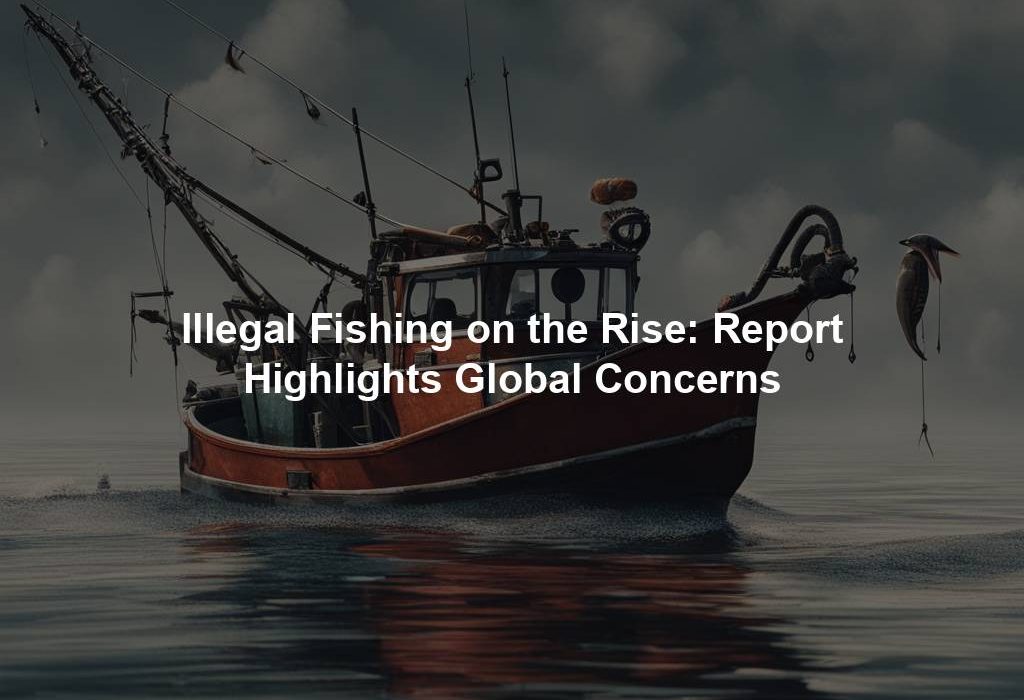Illegal fishing isn’t just a crime; it’s a global tragedy unfolding beneath the waves. The recent report exposing the rampant growth of illicit fishing practices paints a grim picture of the state of our oceans and the communities that depend on them. Let’s delve deeper into the heart-wrenching realities behind this escalating crisis.
As the numbers unveil, a staggering 26 million tons of fish are unlawfully taken from our seas each year, valued at a heart-stopping $23 billion. This illicit plundering amounts to a shocking 20% of the world’s total fish catch, pushing sustainable fisheries management to the brink of collapse. Behind these statistics lie profit-hungry individuals and criminal syndicates capitalizing on lax governance, enforcement gaps, and regulatory shortcomings to perpetrate their crimes.
The toll of illegal fishing reverberates through marine ecosystems, triggering the rapid decline of fish populations. With no regard for conservation measures, these violators disrupt the intricate balance of ocean life, imperiling the livelihoods of legitimate fishermen and endangering the primary protein source for millions worldwide.
What’s more, the tactics used in illegal fishing are often destructive, like the infamous practice of bottom trawling that ravages seabed habitats and leads to the entrapment of non-target species. Countless marine creatures, including endangered dolphins, turtles, and seabirds, fall victim to the indiscriminate bycatch resulting from these illicit operations.
Beyond the environmental devastation, the economic repercussions are severe. Legitimate fisheries hemorrhage billions in lost revenues annually due to the undercutting tactics of illegal fishers flooding markets with unregulated, inexpensive seafood. This not only threatens the sustainability of fisheries but also undermines the painstaking efforts of governments and industry players to uphold fair trade and responsible fishing practices.
The alarm bells sounded by the report echo the urgent need for unified global action to combat illegal fishing effectively. Strengthening enforcement, ramping up surveillance, and closing legal gaps that shield lawbreakers are pivotal steps in the battle against this criminal enterprise. Through a collaborative approach, countries can shield marine ecosystems, fortify food security, and advance sustainable fisheries management for posterity.
A cornerstone recommendation is the establishment of a worldwide fisheries enforcement network to synchronize cross-border efforts against illegal fishing. By pooling resources, expertise, and strategies, nations can enhance tracking capabilities, intercept rogue vessels, dismantle criminal networks, and ensure accountability for perpetrators. Only through this united front can the transnational grip of illegal fishing be broken, leaving no nation vulnerable to exploitation.
In tandem with policing measures, investing in sustainable fisheries management is crucial to curbing the demand for illegally sourced seafood. By advocating for responsible fishing methods, backing small-scale fishers, and fostering consumer awareness, governments and industry stakeholders can foster a sustainable, ethical seafood supply chain that benefits humanity and the environment alike.
The clarion call of the report has reignited the fervor for action among policymakers, conservationists, and industry mavens to confront the escalating peril of illegal fishing. With the stakes sky-high, collaborative efforts are imperative to shield our oceans, preserve marine biodiversity, and secure a thriving future for fisheries worldwide.
Illegal fishing isn’t just a statistic; it’s a resounding call to arms for global solidarity in combating this crisis. Through addressing the root causes, fortifying enforcement, and championing sustainable practices, we can preserve our oceans, sustain livelihoods, and secure food sources for generations to come. The time to act is now, before the damage becomes irreversible. Let’s stand united in safeguarding our seas before it’s too late.




